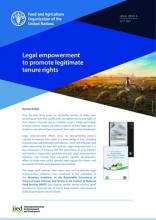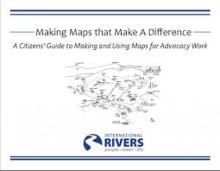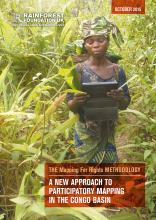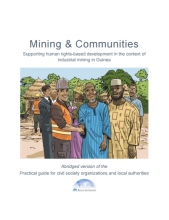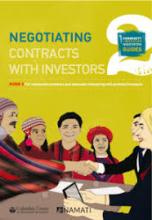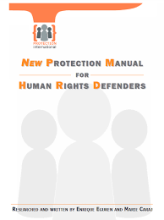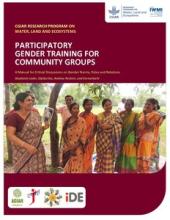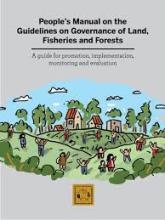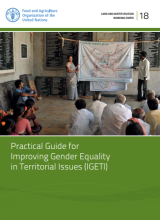Resources for Community preparedness
Legal empowerment to promote legitimate tenure rights
Over the past 30 years, an increasing number of states have passed good laws that significantly strengthen the tenure rights of their citizens. However, due to multiple barriers, a high percentage of many nations’ citizens are either unaware of their legal rights or unable to use national laws to protect their rights when threatened.
Legal empowerment efforts focus on strengthening citizens’ capacity to exercise their rights in a wide variety of forums, including in government administrative procedures, courts and tribunals, and when advocating for laws and policies. Legal empowerment is a key component of ensuring that the governance of land, fisheries and forests is responsible, equitable and just. Legal empowerment initiatives may include legal education; capacity development; efforts to shape state justice systems; legal support for citizens; and promotion of citizen participation in law-making.
Making Maps that Make A Difference
The purpose of this guide is to introduce the process of mapping for communities facing destructive development projects. It also provides information on how to use maps in a campaign.
Mapping For Rights' Mapping Methodology: A new approach to participatory mapping
This guide presents the 'Mapping for Rights' approach, which combines participatory mapping techniques, facilitation and hands-on support with the application of relevant and available technology. This combination of tools, guidance and equipment enables communities to identify advocacy goals that their maps could support. The maps are designed to provide a snapshot of the communities’ reality, including information on their history and socio- economic situation and demonstrate occupation and use of specific areas by communities.
Mining & Communities: Supporting human rights-based development in the context of industrial mining in Guinea
This illustrated guide provides a very basic overview of what local authorities and communities should be aware of if a mining project is planned on or near their territory. It includes infirmation on:
● the law, human rights and actors’ roles and responsibilities
● Conflict and violence prevention and tools
● Addressing and minimising impacts on land ● What people can do if they have concerns.
This resource is part of the CCSI’s Directory of Community Guidance on Agreements Relating to Agriculture or Forestry Investment.
Negotiating Contracts with Investors - Guide 2 For community members and advocates interacting with potential investors
This guide for legal advisors, community leaders and members builds on Guide 1 in this series. If a community decides to negotiate with a potential investor, this guide describes issues that can be included in a community–investor contract. It also explains what language should be avoided in the contract. It is designed to help communities negotiate a contract with an investor that is clear, fair, and equitable.
New Protection Manual for Human Rights Defenders
This manual provides guidance on management logic that can be taken up in different organisational contexts and structures to incorporate security into the work plan to protect human rights defenders.
Participating in Socially Responsible Land Investment - Model Guidebook for Communities Considering Agricultural Investment
This guide takes communities and their leaders, and 'ocal and national civil society organisations, through the steps needed to ensure that land investments in the community are carried out inclusively and responsibly.
Participatory gender training for community groups
This manual provides a step-by-step description of a gender training workshop. It is for any community mobilizer, non-governmental organization (NGO) staff or researcher who wants to hold a discussion with farmers on gender norms, roles and relations in their communities can use this manual. It has been designed for communities with small-scale farming activities, but by adaping the approach, it could also be used for more urban, non-agricultural settings.
People’s Manual on the Guidelines on Governance of Land, Fisheries and Forests: A guide for promotion, implementation, monitoring and evaluation
The manual explains how to use the Voluntary Guidelines on Responsible Governance of Tenure in everyday life to protect the rights of peasants and other communities.
Practical Guide for Improving Gender Equality in Territorial Issues (IGETI)
This guide presents a people-centred gender approach to increase and improve the provision of goods and services from agriculture, forestry and fisheries in a sustainable manner while reducing rural poverty. It first introduces the proposed approach for improving gender equality in territorial issues, with specific guidance for each phase of the gender-response planning process. Then, it presents some available participatory tools to support planning of gender-responsive territorial development. It will be relevant to a broad spectrum of actors: government officials and policy-makers, civil society groups, development practitioners and consultants.


